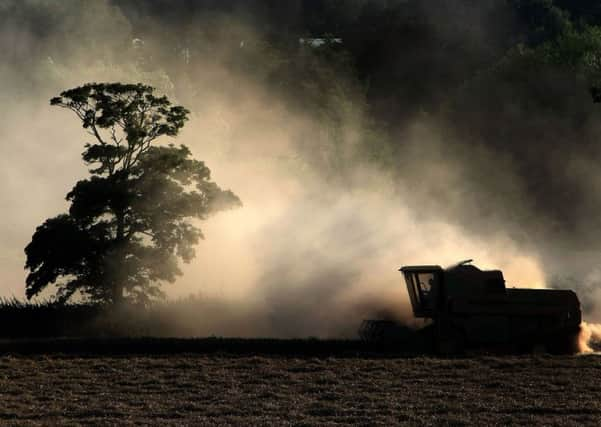Scottish growers could cash in on green biofuel crisis
This article contains affiliate links. We may earn a small commission on items purchased through this article, but that does not affect our editorial judgement.


Concerns were raised in the grain trade in recent days about the ability of UK farm assurance schemes to validate the green credentials of crops grown for the biofuel industry – with merchants expressing concerns that the Red Tractor scheme’s registration with the EU to validate such crops had effectively run out on 6 August.
• READ MORE: Farming news
The requirement for validation was introduced by Brussels to ensure that the growing of biofuel crops did not have negative environmental consequences – and the checks carried out by farm assurance scheme operators was adopted as the method of validation.
Advertisement
Hide AdAdvertisement
Hide AdThe apparent failure of the Red Tractor scheme to gain re-approval has created significant problem for growers in England – with merchants fearing that such crops would no longer meet strict contractual requirements.
However SQC yesterday confirmed that its five-year approval period was re-started at the end of June 2015, when barley was added to the list of SQC crops for biofuels – meaning that SQC’s approval will not expire until the end of June 2020.
SQC said that the grain trade, which was very concerned that all the grain they bought for biofuel production was approved for that use, had been informed that SQC grain was still fully approved and suitable for use as biofuels.
SQC chairman Andrew Moir said that, while the situation was unfortunate for growers south of the Border, it did offer commercial opportunities to members registered with SQC.
“While there’s absolutely no intention to revel in the situation, SQC members will be willing to extend the hand of friendship to help keep the biofuel wheels turning – and this could help improve the outlook for wheat growers in Scotland,” said Moir.
With the Red Tractor scheme currently believed to be in negotiation with the EU over reaching a swift solution to the problem, there was no real indication of how long this opening for Scottish growers was likely to last, but Moir said that there was a possibility that if it took an extended period it could help return the premiums for Scottish wheat which had traditionally existed.
• READ MORE: £11m grant to turn whisky into biofuel
The Ensus plant in the north of England alone has a potential to use over 1.2 million tonnes of wheat a year, with the Vivergo plant consuming a similar quantity in Yorkshire.
Advertisement
Hide AdAdvertisement
Hide AdHowever, other industry sources warned that if these plants decided instead to import validated grain from abroad this was likely to displace the use of the home-produced wheat – which could see significant downward pressure on prices.
Call for ‘greening simplification’
The announcement of the latest changes to the greening regulations for the 2018 support scheme, released by the Scottish Government yesterday, prompted a call for a “simple condensed list” of the changes to be published.
With hard-pressed farmers struggling to harvest this year’s crop and get the first of next year’s crops sown, NFU Scotland said that an easy guide to identifying the differences in the greening rules from 2017 scheme year to 2018 was required.
“That will allow farmers to more easily identify the right greening measures for their farm,” said the union’s president, Andrew McCornick.
The new guidance, which was endorsed by the expert group set up by the Scottish Government under the chairmanship of Professor Russel Griggs’s included:
• The inclusion of hedges and agro forestry as ecological focus area (EFA)
• Changes to the management of EFA fallow regarding the maintenance of drains
• Banning the use of plant protection products, such as pesticides and herbicides on EFA
Advertisement
Hide AdAdvertisement
Hide Ad• The merging of some EFA features such as field margins and buffer strips
While the majority of the changes were welcomed by farmers, McCornick said that a downside was the new EU requirement which banned the use of plant protection products on many EFA options, including on nitrogen fixing crops which would greatly reduce the attractiveness of this environmentally friendly option to many growers.
He also said that the union had a number of issues requiring clarification on some of the rules around EFA, in particular on hedges and grazing of margins.